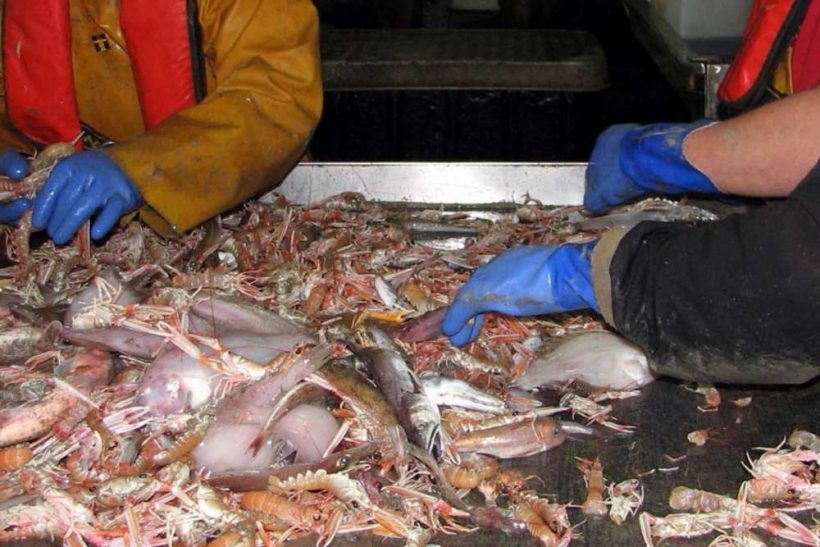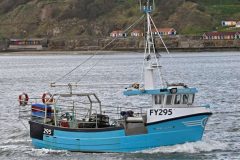Fishermen will be given two years to adjust to the discards ban without heavy-handed enforcement after a vote in the European Parliament last week, reports Tim Oliver.
The Parliament was voting on various aspects of the landings obligation including issues around the handling and storage of catches that would formerly have been discarded.
Scottish MEP Dr Ian Duncan – a former assistant chief executive of the Scottish Fishermen’s Federation – had tabled an amendment calling for a two-year period to allow fishermen to adjust to the complex new rules that start in demersal fisheries in January next year and signal a profound change in fishing practices and management. The Parliament, backed by its Fisheries Committee backed the amendment.
But Dr Duncan has warned that more support is still needed. He said after the vote: “Parliament has ensured skippers will have a two year clear period to adjust to the new rules without fear of heavy handed enforcement.
“However, fishermen urgently need guidance and support so they can fish without fear of breaking the law. Importantly, member states must make use of the flexibility they now have, so fishermen can make a challenging and complex set of rules work in practice.
“The Scottish Government must now tell fishermen what support they will offer to help address issues like shore-side handling, vessel adaptation, and how it will monitor and finance the changes.”
He had earlier written to Marine Scotland urging them to follow the spirit of his amendment and they told him: “We fully recognise the introduction of a new fishing regulation requires a period of adjustment for industry and the enforcement authorities, and we acknowledge that the landing obligation represents a very significant change to fishing practices, which in this case reinforces the need for such a period of adjustment.
“Our policy is to work with skippers to understand and adapt to the new rules, not to progress to prosecution straightaway. As you correctly point out, Marine Scotland Compliance will have the ability to apply their discretion when an infringement is detected and to be proportionate in its approach.
“I can confirm that it will take care to ensure that when possible and appropriate it will take the opportunity to support and guide skippers through the initial period of adaptation to the new legislation rather than resorting precipitately to formal enforcement measures.”


Fishermen will be given two years to adjust to the discards ban without heavy-handed enforcement after a vote in the European Parliament last week, reports Tim Oliver. The Parliament was voting on various aspects of the landings obligation including issues around the handling and storage of catches that would formerly have been discarded. Scottish MEP Dr Ian Duncan – a former assistant chief executive of the Scottish Fishermen’s Federation – had tabled an amendment calling for a two-year period to allow fishermen to adjust to the complex new rules that start in demersal fisheries in January next year and signal a profound change in fishing practices and management. The Parliament, backed by its Fisheries Committee backed the amendment. But Dr Duncan has warned that more support is still needed. He said after the vote: “Parliament has ensured skippers will have a two year clear period to adjust to the new rules without fear of heavy handed enforcement. “However, fishermen urgently need guidance and support so they can fish without fear of breaking the law. Importantly, member states must make use of the flexibility they now have, so fishermen can make a challenging and complex set of rules work in practice. “The Scottish Government must now tell fishermen what support they will offer to help address issues like shore-side handling, vessel adaptation, and how it will monitor and finance the changes.” He had earlier written to Marine Scotland urging them to follow the spirit of his amendment and they told him: “We fully recognise the introduction of a new fishing regulation requires a period of adjustment for industry and the enforcement authorities, and we acknowledge that the landing obligation represents a very significant change to fishing practices, which in this case reinforces the need for such a period of adjustment. “Our policy is to work with skippers to understand and adapt to the new rules, not to progress to prosecution straightaway. As you correctly point out, Marine Scotland Compliance will have the ability to apply their discretion when an infringement is detected and to be proportionate in its approach. “I can confirm that it will take care to ensure that when possible and appropriate it will take the opportunity to support and guide skippers through the initial period of adaptation to the new legislation rather than resorting precipitately to formal enforcement measures.”




